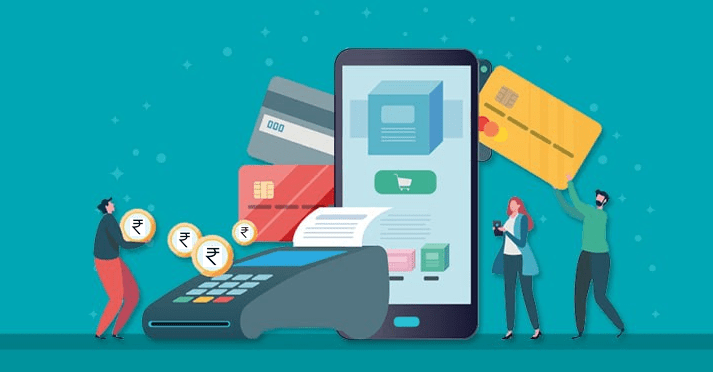Key challenges India’s mobile wallet industry needs to overcome
Do you think choosing a mobile wallet for online payments is somewhat self-contradictory?
No, think about it…..
What is the biggest advantage of using a mobile wallet? It’s ‘convenience’, right? But isn’t it also one of the major disadvantages? As there is no integration among the apps, ‘convenience’ is exactly what is missing.
There are plenty of mobile wallets (applications) to choose from, ironically, it is becoming more confusing as these 70+ applications are trying to get a spot in your mobile, and you are left stuck in the whirlwinds of offers and cashbacks frantically searching for ‘The One’ app to use?
And nowadays mobile wallets are not just about transferring money, they can be used for,
- Make utility and bill payments
- recharge mobiles
- book movie, train tickets
- Tracking monthly expenditure, etc.
According to the report , the volume of mobile wallet transactions was projected to reach about 260 billion in 2022.
But aside from the mind-blowing numbers and statistics, as the digital penetration is increasing, the popularity of mobile wallets is increasing with it, creating a number of challenges that the mobile wallet industry needs to overcome.

What are Payment links?
Making payments is all about convenience, security, and speed. India’s payment system evolved from the barter system to cash to cards to digital...
Fraud and security:
The security breaches and risks for data security is the biggest concern among the consumers and can be considered as a key factor for the adoption of digital payments.
The industry is constantly trying to introduce new ways for secure transactions and upgrading their current modes accordingly, hackers are also evolving their techniques. Making a safer route for transactions is imperative and not a choice as, hacking and security breaches can cause financial as well as a reputational loss for the company.
Awareness and Adoption:
India is a cash dominant society, even though there is a rapid increase in using digital payment modes, there is still a lack of awareness among people concerning security, data privacy, etc. which is leading to them believing that making payments via cards or cash is better than paying mobile application.
Consumers still don’t consider mobile wallets as a safe mode for payment and the mobile wallet industry needs to invest a good amount of time and effort to overcome this. Though there is a clear dominance of using cash over other methods for transactions, many of the consumers prefer using credit or debit cards for transactions as the next option.
There are certain limits for mobile payments, which are more wider for using cards. So, competition with debit/ credit cards can be another key point to the further adoption of mobile wallets.
Merchant support:
Adopting to the mobile wallets is putting many merchants into the dilemma. Many merchants (from small as well as big businesses) are still resisting to upgrade to EMV standards and contactless payments. This is resulting in customers sticking to the traditional/old methods of payments (if their merchants are not accepting digital wallets/digital payments why would they adapt to them?)
Compliance:
mobile wallets need to be compliant with all legal requirements of government standards. Becoming compliant is indeed a difficult task, but it is of utmost necessity. The mobile wallet industry should take needed efforts in the best interest of customers as well as for themselves.

How 3DS payment gateway has affected Ecommerce industry in India
3DS (3 Domain Secure) forms one of the most innovative births in the family of online payments. The protocol developed by VISA to improve online...
Rise of UPI:
Unified Payment Interface is developed by NPCI, India and can be considered as the biggest competitor for mobile wallets. Though UPI has its own share of problems, in the long run, it can be definitely considered as a major challenge for mobile wallets.
Compatibility:
Mobile wallets need to be compatible with all the mobile models and their operating systems. The customer is the king and he is looking for a seamless and convenient way of digital transaction, it is required that compatibility should exist across all os and mobile devices.
Offering more:
As mentioned before, mobile wallets are not only being used for simple payment transactions, some of the key players are introducing solutions that go beyond this. The mobile wallet industry needs to start adapting to new improved business models that can meet customers’ needs.

All about the Benefits of Digital Payments
All about the Benefits of Digital Payments India has always been extremely comfortable with the traditional method of making payments, which is...
In conclusion,
A mobile wallet can undoubtedly be considered one of the greatest innovations, but there are still challenges to overcome. Consumers need a compelling reason to switch to mobile wallets. They may adapt to the mobile wallets quickly if they understand the integrated features and value services mobile wallets offer. So, less maintenance and more innovation are required for achieving interoperability across the services.



